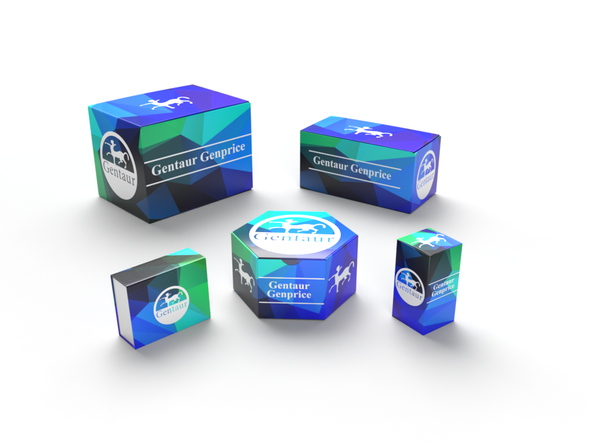Description
Mouse Anti-Human B7-H2 Antibody | 101-M225 | Gentaur UK, US & Europe Distribution
Species: Anti-Human
Host / biotech: Mouse
Comment: N/A
Label: N/A
Clone / Antibody feature: (#19G23)
Subcategory: Monoclonal Antibody
Category: Antibody
Synonyms: ICOSLG; B7H2; GL50; B7-H2; B7RP1; CD275; ICOSL; LICOS; B7RP-1; ICOS-L
Isotype: IgG2
Application: WB, N
Detection Range: N/A
Species Reactivity/Cross reactivity: Human
Antigen: recombinant human recombinant B7-H2 EC domain
Description: Cathepsins of the papain family can be divided into two functional groups. One group comprises ubiquitously expressed, intracellular housekeeping proteases responsible for the general lysosomal protein breakdown. The cathepsins L, B, H, and probably O (1, 2) belong to this group. The other group is characterized by a tissue restricted expression pattern and by the assignment of specific functions correlated with their tissue distribution. For example, cathepsin S, the first known tissue-specific cysteine protease is primarily expressed in lymphatic tissues (3, 4) and is responsible for the specific degradation of the invariant chain of MHC class II complexes in antigen-presenting cells (5, 6). Cathepsin K, which is predominantly expressed in osteoclasts, is a major protease in bone resorption (7-9). All presently known thiol-dependent cathepsins share common protein structures with a signal sequence of 16–18 amino acids, followed by a propeptide of 62–100 residues and then a catalytically active mature region of about 220–230 amino acids (1). The propart is involved in the folding of the precursor protein, in the temporary inhibition of the protease in its precursor form, and in transport of the proenzyme to the endosomal/lysosomal compartment using mannose 6-phosphateN-glycosylation sites (10, 11). Finally, the mature, catalytically active, enzyme contains the catalytic triad consisting of Cys-25, His-159, and Asn-175 (papain numbering) and is folded into a two-domain structure. In addition, thiol-dependent cathepsins have been characterized as lysosomal enzymes, since they have signal sequences and potential N-glycosylation sites and generally have pH optima in the acidic pH range.
Purity Confirmation: N/A
Endotoxin: N/A
Formulation: lyophilized
Storage Handling Stability: Lyophilized samples are stable for 2 years from date of receipt when stored at -20°C. Reconstituted antibody can be aliquoted and stored frozen at < -20°C for at least six months without detectable loss of activity.
Reconstituation: Centrifuge vial prior to opening. Reconstitute the antibody with 500 µl sterile PBS and the final concentration is 200 µg/ml.
Molecular Weight: N/A
Lenght (aa): N/A
Protein Sequence: N/A
NCBI Gene ID: 23308






